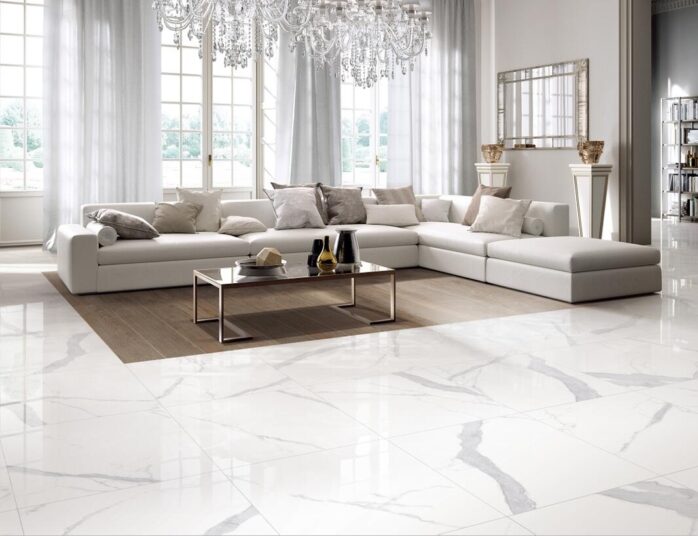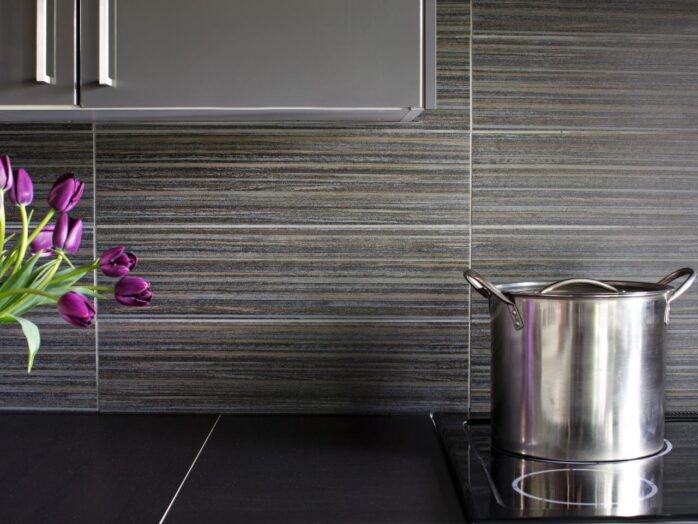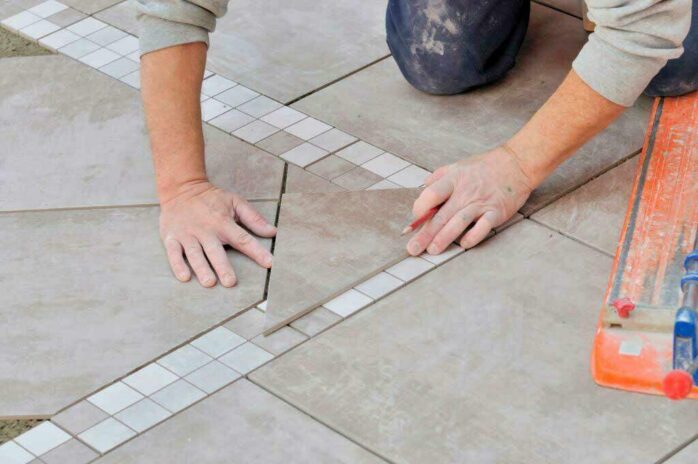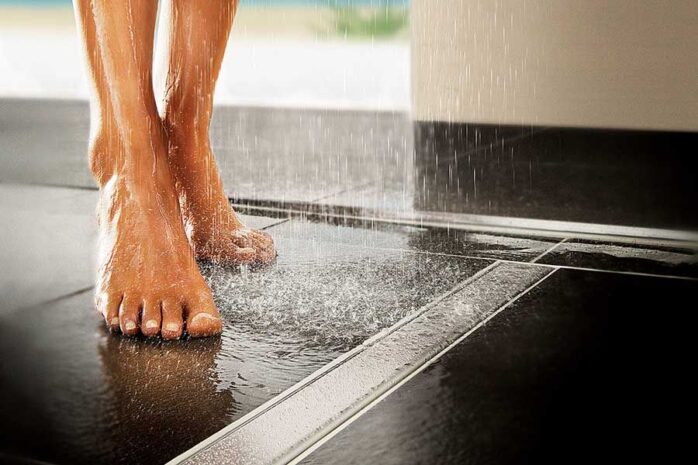
Ceramic tiles are possibly the number one flooring choice that will actually do the job in every room of the house. They are mostly applied in kitchens and bathrooms, and also in lobbies, restrooms, and other areas that get a lot of foot traffic. However, a lot of homes, particularly in warmer climates, are also choosing to use ceramic tile in living rooms and bedrooms that have great appeal. Simply put, if you choose tile, you really cannot make a mistake. If this durable, classy type of flooring has any disadvantages, it’s that it may be hard, cold, and a bit difficult for do-it-yourselfers to install.
Ceramic tiles generally feature a hard, rigid surface that will not draw or retain dirt, dust, pollen, or anything else that may be an allergen. Once these tiny particles end up on a ceramic floor, these particles tend to lift off the surface and can be cleaned off easily using a mop or sponge. As a result, you can maintain clean air free of allergens that can cause harm to asthmatics and people with allergies.
Ceramic tiles are easy to maintain

Indeed, among the qualities that people like best about ceramic tile floors is the fact that they are simple and easy to maintain. So when stains, dirt, or liquids end up on it, they all remain on it and are not absorbed. Therefore, this makes them extremely manageable to wipe up or wash away. Periodically, you will be able to maintain them neatly by using a vacuum cleaner equipped with a soft brush accessory or a sweeping broom to remove loose debris and filth from the floor. However, if there are any visible stains, you can use almost any cleaner that will not harm the tile floor.
This is why a lot of people choose to tile their kitchens and bathrooms with ceramic tile. Apart from the fact that it is easy to sanitize, it also prevents germs from settling on the floor. For example, this will be an advantage for those who have a business that involves being exposed to a greater number of people, such as a restaurant.
Ceramic tiles are not easy to install
Ceramic tile requires a lot of work and is a bit difficult to install. However, enthusiasts could probably do it, but tiles are not so DIY-friendly as laminate or vinyl. Installing floor tile professionally begins with a layer of cement board on top of wood subfloors, thus increasing the project’s cost, duration, and effort. These tiles will then be adhered to the underlayment with a cementitious thin-set adhesive, after which the installation process ends by filling the gaps between the tiles with grout.

Those homeowners looking to install floors with their own tiles are advised to be careful about selecting products, meaning they should choose the ones that can be installed in a relatively easy manner, as well as to avoid fiddly tiles, such as those that are intended for installation by professionals. Indeed, there are some ceramic floor tiles that are relatively heavy, plus all tiles have to have a rigid, strong floor frame so as to avoid cracking. Meaning that tiles are not always suitable for upper floor installations or floors with inadequate floor structure.
They are water-resistant
Another advantage of ceramic tile floors include the fact that they are resistant to water. They have a surface protective layer applied to the material, which is resistant to stains and water. These are essential in bathrooms and kitchens because the ceramic tile is much longer-lasting compared to other materials. Likewise, it withstands very humid temperatures, which means you will not have to be concerned about it deteriorating throughout the very hot and muggy summer seasons. In fact, every humid environment will greatly benefit from ceramic tile.

When purchasing unglazed tiles, it is necessary to apply a sealant to the tiles to keep the surface protected from liquids. Especially gap lines between tiles are likely to be prone to moisture, therefore, remember to use sealant. Without it, water will be able to get into the tiles deeply, weakening their foundation and making them susceptible to mold and mildew. Later on, this could cause expensive troubles, and you may have to deal with them.
Durability
Ceramic tiles have excellent thickness, durability and are resistant to abrasion. As long as you care for them properly, tiles with a professional installation could endure up to 20 years if not more, points out Viglacera Ceramics. Moreover, in the event that a tile breaks, this tends to be because of a heavy hit, plus you’ll realize that fixing a tile is easy. This allows you to maintain a low total cost since you do not have to periodically replace the tiles.
Slippery

Although ceramic tiles are easy to clean, the hard surface is not great for places that tend to get wet quite a bit. Ceramic flooring is pretty slippery, meaning that if you are going to install it in areas that get a lot of traffic, then you will definitely want to avoid accidents as much as possible. Therefore, consider not installing them in places where people often spill liquid or water on the ground, since this can cause accidents and injuries. For example, you should not use them in public restrooms.
There are advantages and disadvantages associated with installing tile flooring. It is important to take multiple aspects into consideration, for example, where you would like to install it, how much of a budget you have, as well as which types of people, are most likely to walk or stand on it. Plenty of people actually appreciate how long-lasting it is and the fact that it’s water-resistant, which is absolutely required in places such as a bathroom or kitchen. Other people, however, may not like how heavy or cold the ceramic tiles are. This is something you will need to determine based on what factors you think would be important.











